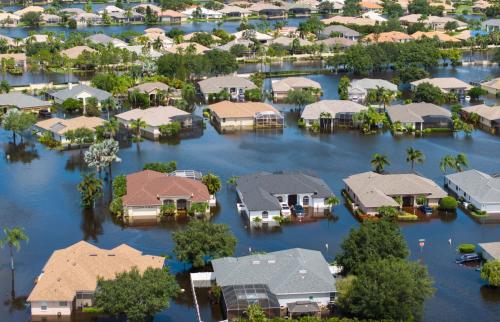Abstract
We use an econometrically-estimated multi-region, multi-sector general equilibrium model of the world economy to examine the effects of using a system of internationally-tradable emissions permits to control world carbon dioxide emissions. We focus, in particular, on the effects of the system on flows of trade and international capital. Our results show that international trade and capital flows significantly alter projections of the domestic effects of emissions mitigation policy, compared with analyses that ignore international capital flows, and that under some systems of international permit trading the United States is likely to become a significant permit seller, the opposite of the conventional wisdom.
The Brookings Institution is committed to quality, independence, and impact.
We are supported by a diverse array of funders. In line with our values and policies, each Brookings publication represents the sole views of its author(s).




